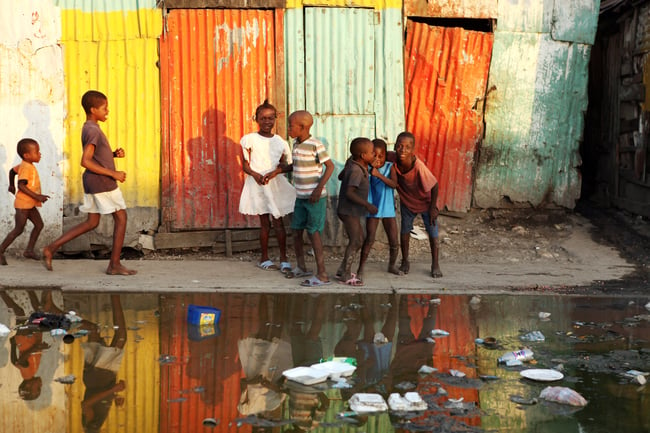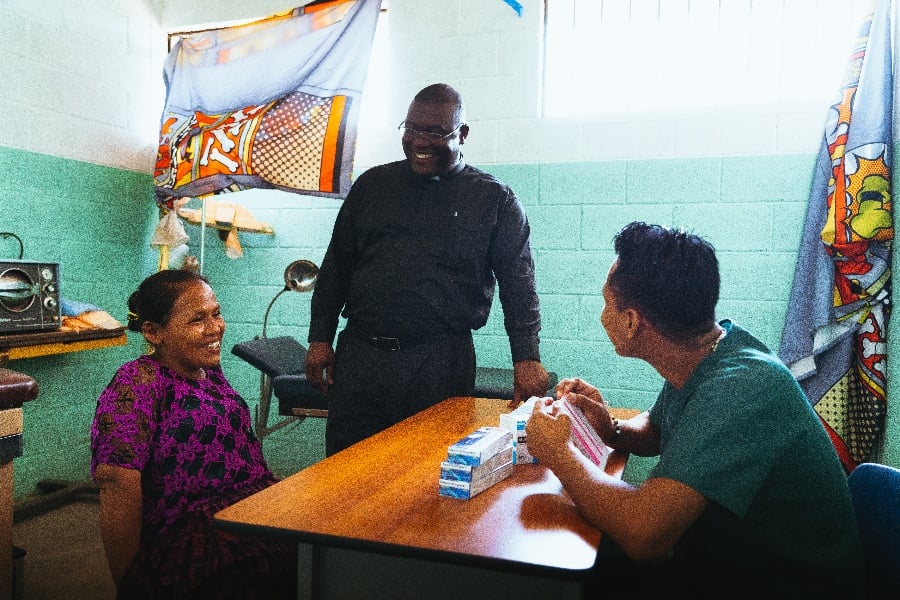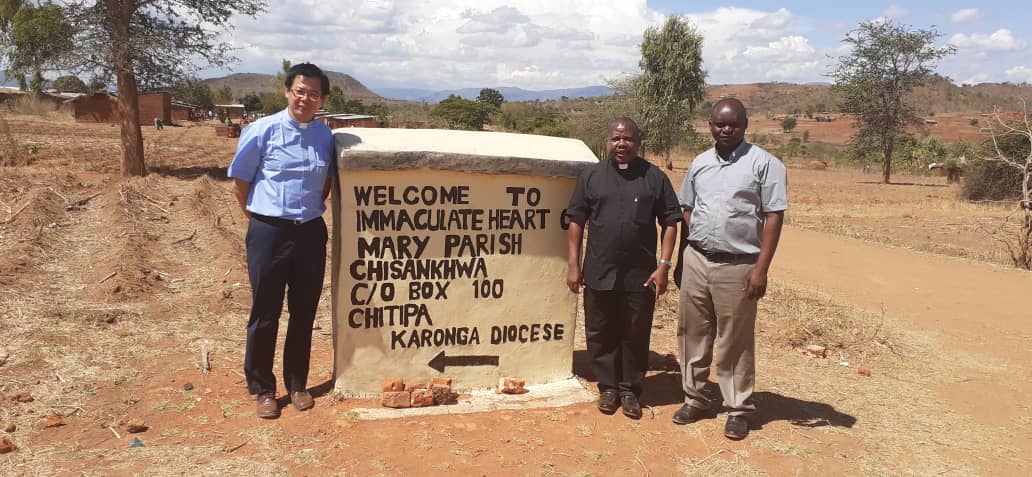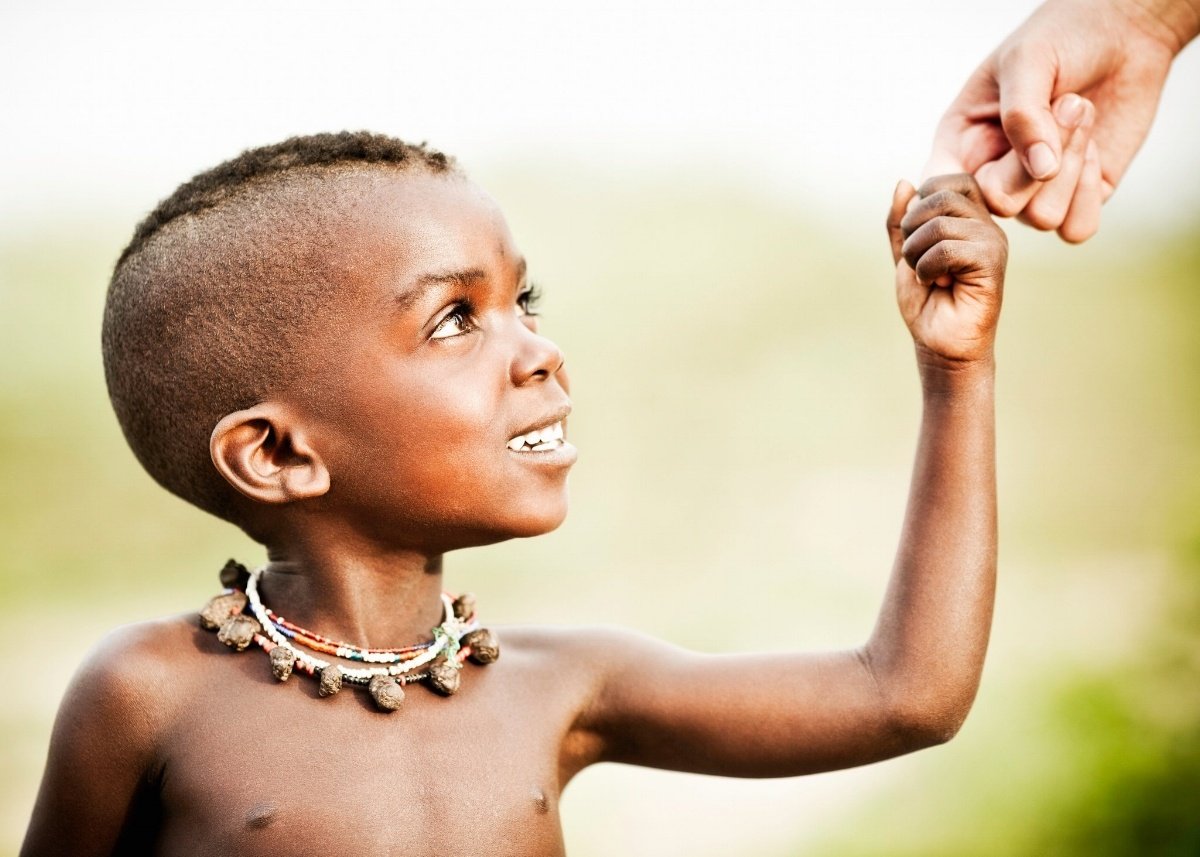
It has been almost 6 years since Haiti was hit by the worst earthquake in the region in over 2 centuries, a massive 7.0 earthquake in January 2010 that killed at least 200,000 people, injured more than 300,000, leveled the capital of what was already the poorest country in the Western Hemisphere, and left over 1.5 million homeless.
And although Haiti received billions of dollars in aid in the aftermath of the earthquake, its residents continue to struggle daily to obtain what most Westerners would consider basic living conditions.
To understand the toll that the earthquake took on Haiti, it is helpful to learn a few facts about its political, social and economic climate.
Some Facts About Haiti
-
Haiti has experienced political instability for most of its history as a nation, resulting in corrupt and ineffective government, and poor infrastructure such as inconsistent access to electricity, inadequate supplies of potable water, and the least developed telecommunications capabilities in Latin America and the Caribbean.
-
Over 80% of Haiti’s residents are below the poverty line, with 54% considered to be living in abject poverty.
-
Haiti’s per capita GDP has fallen an average of 0.7% annually since 1971, with a significant fall in 2010 after the earthquake.
-
More than two-thirds of Haiti’s labor force do not have formal jobs.
-
Approximately 40% of the population depends on agriculture for its income and subsistence, making them vulnerable to the country’s frequent natural disasters.
-
Because of its extensive deforestation and poor infrastructure, Haiti regularly experiences flooding in the wake of severe storms and hurricanes.
-
Less than one year after the earthquake, Haiti was hit by Hurricane Tomas (November 2010) and again two years later by Hurricane Sandy (October 2012). The hurricanes significantly impacted the agricultural output of the country and left 18,000 additional people homeless. That was in addition to the already 370,000 who were still homeless from the earthquake.
-
34% of Haiti’s children between the ages of 5 and 14 engage in child labor, with over 200,000 working a daily average of 10-14 hours as slaves under horrible conditions such as malnutrition, physical abuse and sometimes sexual abuse.
-
Because many births are not registered, children lack the personal identification papers necessary to gain access to the justice system and to receive public social protection services, a problem that was only exacerbated by the earthquake.
Still In Recovery
Thanks to aid from the international community, Haiti has made some significant strides in the last five years. But for such a poor country, there is no easy and quick fix for recovering from such devastation. Haiti is a country still in recovery from the earthquake, a recovery that is further hampered by disease and political turmoil.
Earthquake Recovery
At the beginning of 2015, more than 85,000 people were still homeless from the 2010 earthquake. They reside in displacement camps where, on average, 82 people share one toilet, and fully one-third of people have no latrine at all. Many of those who do have housing live in unsafe structures. Approximately 200,000 of them are living in slums in homes with no electricity, running water or sanitation.
The United States Agency for International Development (USAID) initially budgeted $59 million dollars to help build 15,000 homes. In 2013, the budget was adjusted up to $97,000 and reduced its goal to 2,649 homes. As of the beginning of 2015, it had built approximately 900 homes.
Nearly 70% of Haitians do not have direct access to potable water. Its health care system, already dysfunctional prior to 2010, was devastated in the earthquake, and the majority of Haitians struggle to get access to much-needed health care.
Cholera Outbreak
Months after the earthquake, Haiti suffered its first outbreak of cholera in over 500 years. Since its outbreak in 2010 up to August 2015, there have been over 700,000 reported cases with almost 9,000 ending in death. In 2015 alone, there were over 21,000 reported cases and 192 deaths by August.
Influx of Dominican-born Haitians
In recent months, Haiti’s neighbor, the Dominican Republic, has started to deport Haitians who had immigrated to the DR illegally under a new immigration policy. Estimates are that the deportations could affect over 300,000 undocumented Haitians, some of whom took refuge in the DR since the earthquake but most of whom were born in the DR. Those hundreds of thousands of Haitians will be returning to a country that is already over-taxed and ill-equipped to provide housing, jobs and social services for such an influx. And these refugees are unlikely to have the personal identification necessary to gain access to the few public resources that might be available to them.
What Does Haiti Need From Us?
When faced with such staggering statistics, it can be easy to feel like there is little we can do to make any difference. But for people in desperate situations, relief, even if temporary, is always welcome. Simple things that many of us in the developed world take for granted can mean the difference between health and illness, safety and danger, adequate nutrition and starvation. Here are some things the people of Haiti need from us.
Prayers
Haiti is in great economic, political, environmental, and moral need. You can pray for the leaders of Haiti to be moved to come up with solutions that will bring relief to its people. You can pray for aid money directed to Haiti to be used well. You can pray that the people gain access to good health care, safe living conditions, and jobs that pay fair wages. And you can pray for the organizations that are engaged in improving conditions in Haiti.
Clean, Fresh Water
Increasing access to clean, fresh water would bring about significant improvements. In addition to being a life necessity, clean water is critical to fighting the cholera outbreak. Cholera is a water-borne disease that is contracted by drinking or using contaminated water. It also causes significant dehydration. Because of lack of access to clean water, many residents resort to bathing or washing their clothes in contaminated rivers or bringing contaminated water home for their household use. The Haitian government and aid organizations have not raised anywhere near enough money to make the improvements needed to provide clean water and sanitation. You can donate to organizations that are committed to providing clean, fresh and potable water to residents in Haiti.
Personal Hygiene Kits
Increased hygiene can help improve the lives of Haitians by stopping or curtailing the spread of disease. You can work with some organizations that will ship personal hygiene kits to Haiti and distribute them to areas of need. Basic supplies such as soap, shampoo, toothbrushes, toothpaste, and hand towels can make a difference.
More Advocates
In the wake of the 2010 earthquake, help poured in from all over in the form of $10 donations by text to hundreds and thousands of dollars of aid from national and international organizations. But people’s attention spans are short, and few today in the developed world know just how dire situation is for the people of Haiti. You can raise awareness and advocate for more funding by telling people about the plight of Haitians. You can contact your elected officials and ask them to put pressure on the Dominican Republic to stop the deportations of undocumented Haitians. You can raise the profiles of organizations that are working to improve living conditions for Haitians.
Help Haiti by Partnering with Missionhurst
Missionhurst sends missionaries to Haiti to advocate for the defenseless, educate children, train teachers and church leaders, and help with the economic recovery efforts in Haiti.
Want to learn more about how you can help support our efforts in Haiti?








